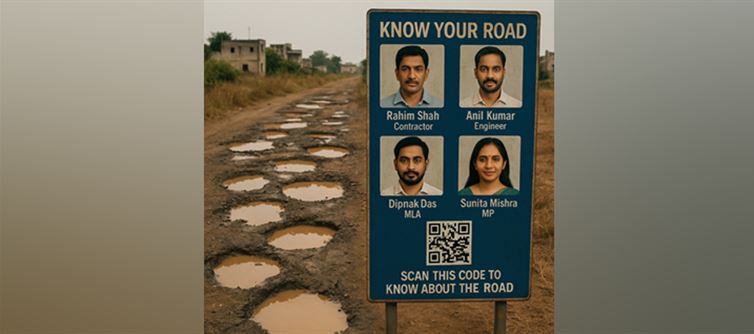
Union minister Nitin Gadkari, who has frequently touted record-breaking highway construction figures, now faces sharp criticism for prioritizing toll collection over ensuring road safety and maintenance. While some express appreciation for mega expressways like the Delhi-Mumbai corridor or Bengaluru’s Peripheral Ring Road, they argue these projects serve the elite while common roads used by ordinary indians remain neglected. The poor quality of materials, lack of monitoring, and rampant corruption among contractors and local officials further aggravate the situation. Despite thousands of crores being sanctioned annually, the outcome on the ground rarely matches the budget on paper — and the absence of transparency only deepens public distrust.
One innovative idea proposed by a frustrated netizen has gone viral: the installation of QR codes on every road project. Scanning this code would instantly display details such as the contractor’s name, the supervising engineer, the local mla or mp involved, and the total budget sanctioned for that stretch of road. This simple step could bring about a radical shift in accountability and public oversight. Citizens would finally have access to information that has long been hidden behind bureaucratic layers, and authorities would be forced to think twice before cutting corners. In a democracy, infrastructure should not just be about ribbon-cutting ceremonies and hollow speeches — it should be about accountability, quality, and people’s right to safe travel.




 click and follow Indiaherald WhatsApp channel
click and follow Indiaherald WhatsApp channel